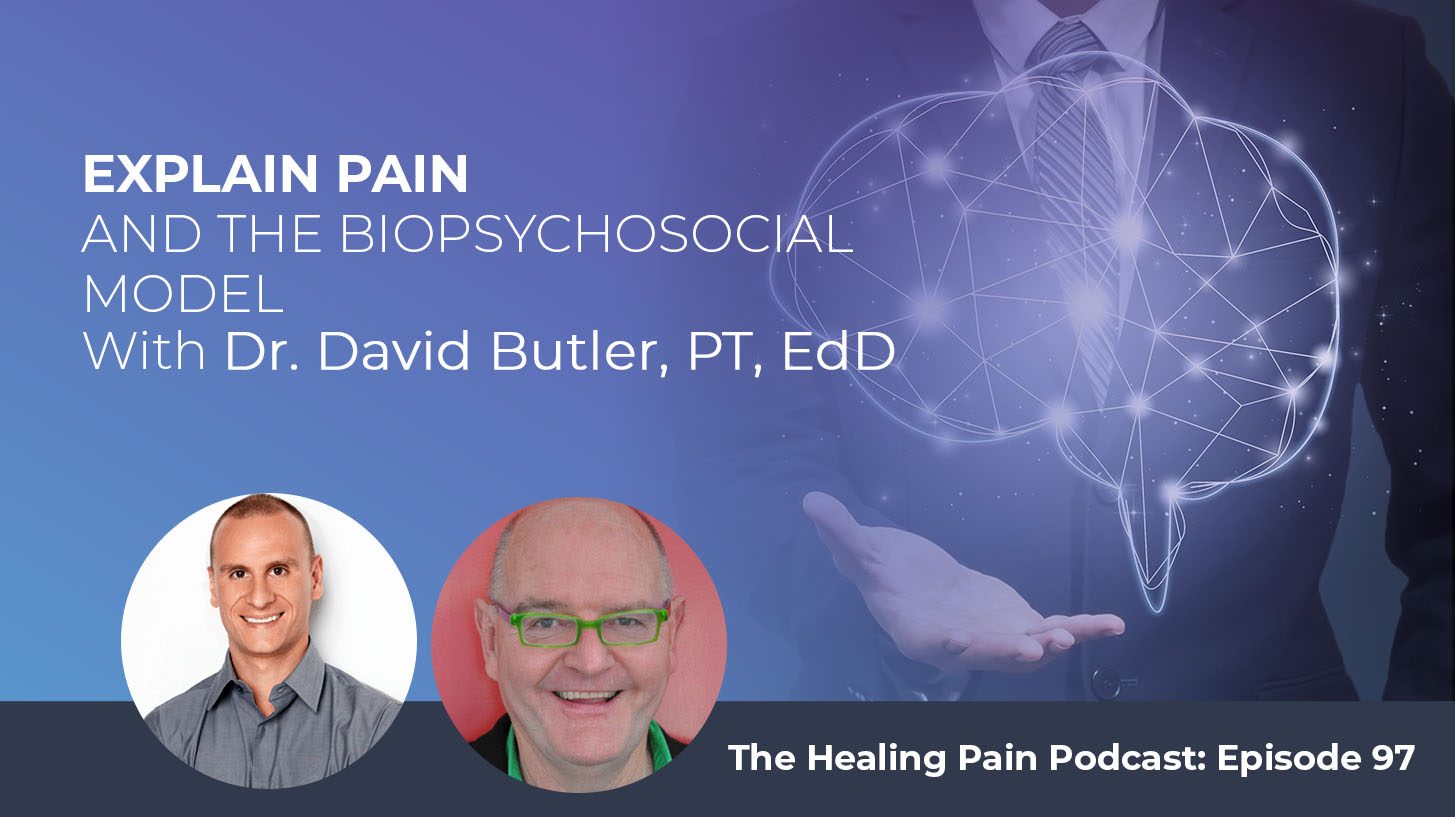
Joe Tatta has interviewed David Butler for The Healing Pain Podcast in an episode entitled ‘Explain Pain and the Biopsychosocial Model’. You can check out the episode and related blog.
The context:
I have something special planned. I am breaking open the vault to share with you one of my favorite interviews from the 2016 Healing Pain Summit and that is the interview with Physiotherapist and Explain Pain Master, David Butler. David Butler is a physiotherapist, international educator and adjunct professor at the University of South Australia and an honorary lifetime member of the Australian Physiotherapy Association. His professional interests focus of course on the effective treatment of chronic pain, but also on the integration of pain education as an effective treatment for both the public and professionals. He’s the author of numerous books, chapters and articles, the two most popular being Explain Pain and Explain Pain Supercharged.
A taste of the interview (Joe’s questions in bold, David’s responses in italics)
You brought up the point of education and how education can impact people who have pain. As people read this they’ll start to think, “He’s talking about Cognitive Behavioral Therapy almost.” How does something like CBT differ than explaining pain than a traditional physical therapist would use?
CBT is obviously the most well-known of the psychological methods, and I think explaining pain and CBT both offer a lot to each other but they’re still to merge. There are some issues with CBT though because one of the features of CBT that is taught in the UK, perhaps in the US as well, is that if you have pain then CBT can help you function better but then they don’t think can you change pain. One thing we believe firmly and the data shows, is that we believe that not only can you function better, but pain can also change. There’s a fundamental turn that is linked to that to take it on. That is we should be considering pain treatment, not pain management.
You brought up two points that I want to touch on. The first is what is a biopsychosocial approach? How does it differ from what many clinicians have been practicing for the past five decades?
It’s a big, clumsy word, but I’m afraid we don’t have anything better at the moment. It’s become a bit trendy. I don’t know in the US but here it’s quite trendy to say, “I’m biopsychosocial.” Very few people understand what it is and the true strength of it. I must admit I did a doctorate in it. I’m not sure that I still quite understand it. If I could briefly, the bio in biopsychosocial is not biomedical, it’s big bio and that includes the biological processes within the tissues of the body, within the brain, within the mental frameworks and the interactions between them. The psycho includes the psychological components which interestingly are increasingly being biologized. By that for example, catastrophization. We know some of the immune changes that occur with catastrophization which by the way makes it good to help explain catastrophization.
The social side, which is often missed in our health profession, but I always tell people if you’re with a patient and that patient is telling you about their pain state, if you can suddenly realize, “This is not a problem just with this person. This is a problem in society as a whole.” Then you’d get the social part of biopsychosocial. There’s the other framework, the biomedical framework, the find it and fix it. By the way, we never want to let it go because there are some fabulous pieces in biomedical thinking, and I would say many of your audience, there would be some who would not be alive today if somebody didn’t have a detailed biomedical hunt for pathology.
You can read or listen to the entire interview here.
– Noigroup


comments